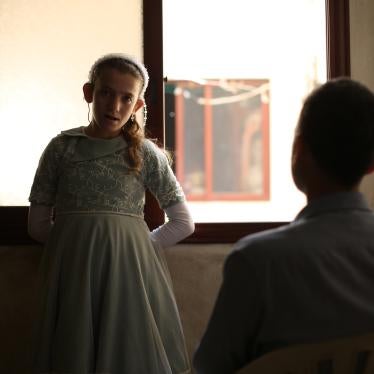Good morning and good afternoon everyone,
My name is Nujeen Mustafa. I was born with cerebral palsy and I use a wheelchair.
In 2015, I fled the war from Syria to Germany.
Today, I am an advocate for the rights of refugees and people with disabilities.
In April 2019, I was honored to be the first person with a disability to brief the UN Security Council on the particular impact the war in my country, Syria, has had on people with disabilities.
I hoped that my briefing would be a wake-up call for the international community, including the UN, to recognize the lack of protection for us, people with disabilities.
And, my dream did come true. A few months after my briefing, the Security Council adopted a resolution committing to protect us. I want to extend my gratitude to those of you here today who made that happen.
Since then, I have become disappointed. This is because, from what I see, nothing has practically changed for people with disabilities in Syria and other places where there is war or a humanitarian crisis.
The lack of action is unexplainable. Protection during armed conflicts and access to essential necessities is our right, not a favor that we are asking for.
More needs to be done to change things on the ground for us. Last month I watched the testimony of Thara, an 18-year-old woman from Syria, who lost a leg when she was 13 and is now fear[s] [that she will have] to flee attacks and doesn’t have access to services.
I know how she feels - because I’ve been there.
That is why today, just like in April 2019, I am asking for the following:
First, my message to the UN, governments, donors, and humanitarian organizations is: you have to move beyond mere platitudes to delivering meaningful action on the ground.
In the Resolution [2475], you committed to consider the particular needs of persons with disabilities in humanitarian response. For this to happen, there has to be targeted funding.
Without it, sentiments and declarations, as good as they may sound, are useless, and are nothing but empty promises.
Second, data collection. The UN Resolution requests the Secretary-General to include information and recommendations specifically with respect to persons with disabilities in briefings to the Security Council.
However, we continue to largely remain invisible. A pattern that I’ve noticed when it comes to the protection of other groups – like women and children, is that they are always reported on, but that is not the case when it comes to people with disabilities.
The UN system needs to do better to systematically collect data, monitor, and report on people with disabilities.
Thank you.





